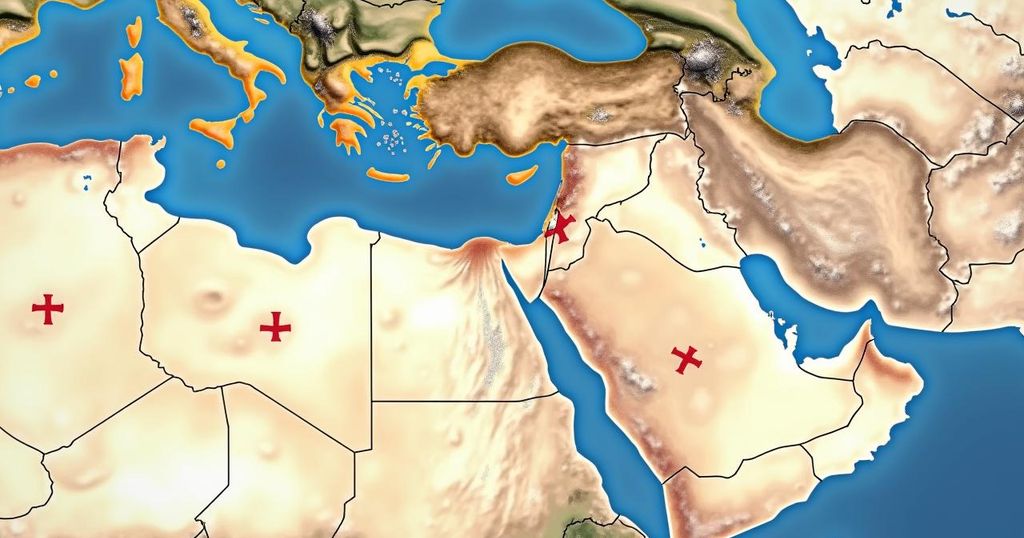Gulf States Reinforce Airspace Restrictions Against Israeli Actions Targeting Iran

Saudi Arabia, the UAE, and Qatar have informed the U.S. that they will deny Israel access to their airspace for operations against Iran. This decision reflects rising concerns of Iranian retaliation targeting oil facilities in response to potential Israeli strikes, particularly after Iran’s missile attack on Israel in October.
Recent developments indicate that Saudi Arabia, the United Arab Emirates, and Qatar have made the decision to deny Israel access to their airspace for any militaristic endeavors directed towards Iran. According to a report by Reuters, these Persian Gulf nations have communicated their stance to the United States, aiming to prevent any potential Israeli strikes that might compromise their oil production facilities. As tensions escalate, there exists a palpable concern among these states that Iranian retaliation could ensue should Israel launch an attack. Notably, Iran has issued stern warnings regarding any aggressive actions, highlighting the risks associated with regional hostilities. Considerable apprehension has arisen following Iran’s significant missile assault on Israel on October 1, termed Operation True Promise 2, in response to targeted actions against resistance leaders. The report suggests that there is advocacy among Gulf countries urging the U.S. to intervene and dissuade Israel from directing its aggression at Iranian oil infrastructures. Furthermore, it is worth noting the complications that could arise in the global oil market, particularly in the context of rising prices and potential supply issues, should escalatory measures be taken by Israel.
The geopolitical landscape of the Middle East is notably complex, particularly with respect to Israel and Iran’s fraught relations. The anticipated military actions between these nations have instilled anxiety among their neighbors, particularly those within the Persian Gulf. The Gulf states, primarily Saudi Arabia, the UAE, and Qatar, have significant stakes in maintaining stability, especially regarding their oil exports. The concern is further exacerbated by Iran’s capacity for retaliation through regional resistance groups, potentially jeopardizing critical oil infrastructure in response to Israeli military actions. The historical rivalry and the current state of hostility between Israel and Iran necessitate a cautious approach from the Gulf Cooperation Council (GCC) nations, particularly in context of their strategic alliances and interests.
In summary, the decision by Saudi Arabia, the UAE, and Qatar to restrict Israeli access to their airspace signals a strategic effort to mitigate risks associated with potential military escalation between Israel and Iran. With the looming threat of Iranian retaliation, these Gulf states are demonstrating solidarity against aggression that could threaten regional stability and their oil infrastructure. Moreover, this situation invites broader implications for global oil markets amidst rising tensions and the possibility of conflict leading up to critical geopolitical events such as the U.S. presidential elections.
Original Source: www.presstv.ir








